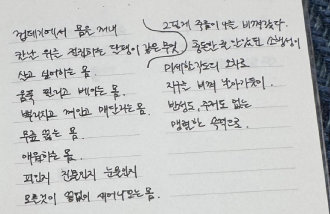Businesses aim to stay afloat next year
Businesses aim to stay afloat next year
Posted December. 27, 2021 08:43,
Updated December. 27, 2021 08:43
The new year is only five days away, but one third of domestic companies with more than 30 employees do not even have business management plans for next year. According to the Korea Enterprises Foundation, 53.5% of businesses that have barely been able to make plans have stated ‘maintaining status quo’, while 22.9% aim for austerity measures. This implies that three out of four businesses aim to stay afloat, even often at the cost of reducing their business scales. It would be difficult to expect significant growth in investment and employment in such circumstances.
Businesses are not feeling confident about the year ahead due to uncertainties of COVID, surging cost of natural resources coming from disruptions in global supply systems, employees’ demand for higher wages. Though the government says that the economy is recovering at one of the fastest rates among advanced countries, companies’ view the growth rate of 4.0% as a simple recovery from last year’s reverse growth of 0.9%.
With interest rates set to rise by the Bank of Korea in January and the Fed, likely to take place in March, there are many other obstacles ahead. If these measures absorb excess liquidity, bringing down real estate and stock prices, it may impact consumer sentiment. Disposable income at households in Korea would be severely impacted, where many have bought real estate and stocks through aggressive borrowings.
The government and politicians should provide powerful incentives by introducing dramatic deregulations to boost investment and employment to help companies overcome these challenges. The government, however, continues to undermine business confidence by pushing ahead with the Serious Accidents Punishment Act, which penalizes the CEO for unpredicted accidents at work. Both presidential candidates Lee Jae-myung and Yoon Suk-yeol support the idea of labor union heads being involved at the board of directors at public institutions and recognizing the head of labor union activities as working hours, known as the time-off system. Both changes are those that business management find most concerned about being introduced in private sectors.
Even the head of a leading Korean company has described the economic situation as “disheartening, facing the heartless and dire circumstances” of heightening trade tension between the US and China and rapid changes to the global supply chain network. The government and presidential candidates should pay attention to why businesses face the new year apprehensively and focus on creating jobs instead of making empty promises to look after the economy.




![[김승련 칼럼]‘한동훈 배신자’ 논란, 뜨겁게 붙으라](https://dimg.donga.com/c/138/175/90/1/wps/NEWS/IMAGE/2026/02/01/133276557.1.jpg)


